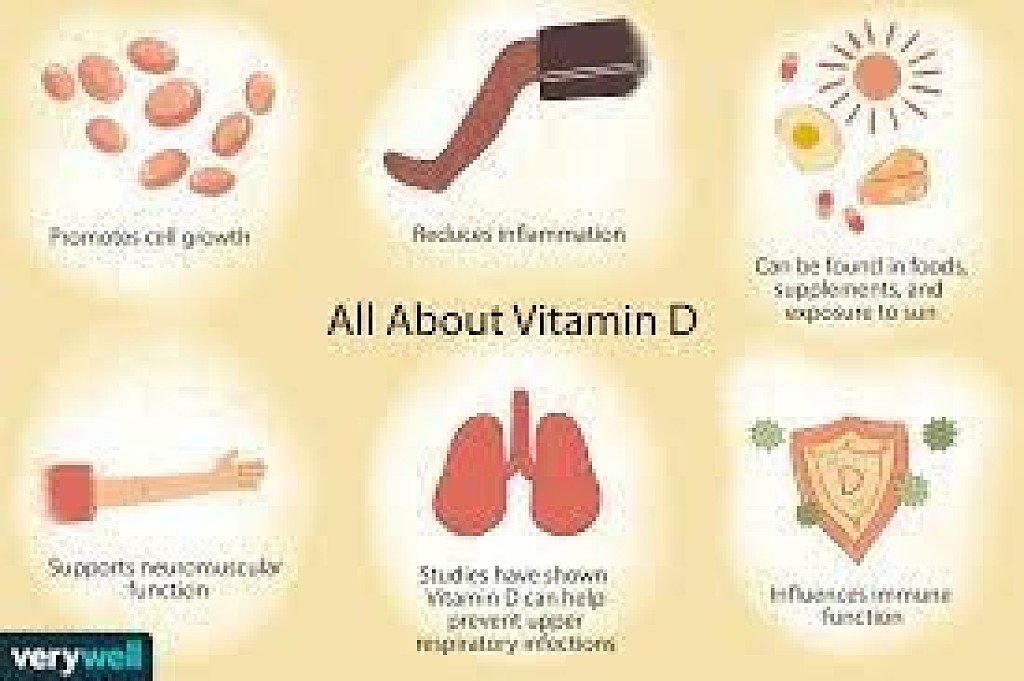Running News Daily
Running News Daily is edited by Bob Anderson. Send your news items to bob@mybestruns.com Advertising opportunities available. Train the Kenyan Way at KATA Kenya and Portugal owned and operated by Bob Anderson. Be sure to catch our movie A Long Run the movie KATA Running Camps and KATA Potato Farms - 31 now open in Kenya! https://kata.ke/
Index to Daily Posts · Sign Up For Updates · Run The World Feed
Why Trail Runners Need To Get Enough Vitamin D
You probably already know that vitamin D is a critically important nutrient, especially when it comes to your skeletal system. Vitamin D and calcium go hand in hand. While calcium creates strong, healthy bones, vitamin D helps your body absorb that mineral and put it to use. If you aren't getting enough vitamin D, a deficiency can lead to weak and brittle bones.
Yet there's so much more to this particular vitamin than just bone health. And if you're lacking it, you can face problems that extend far beyond your bones. Here's what science says about the effects of vitamin D deficiency on your overall health.


A vitamin D deficiency can decrease muscle function
Recent research published in the Journal of Endocrinology suggests that failing to get enough vitamin D has a negative effect on your muscle function.
In their study, researchers compared two groups: one that followed a diet that offered the right amount of vitamin D and one that followed a diet with a vitamin deficiency. Over the course of three months, researchers tested skeletal muscle mitochondrial respiration, or the process that fuels your muscles' function.
While there were no differences in body weight, muscle mass, or food intake between the two groups, there was a significant difference in skeletal muscle mitochondrial respiration. A vitamin D deficiency led to decreased respiration, which indicated impaired (or decreased) muscle function.
Additionally, another research study found similar results. Researchers studied individuals with vitamin D deficiency, treating them for that deficiency for 10 to 12 weeks. Over the course of the study, researchers saw skeletal muscle mitochondrial respiration improve. At the same time, participants reported that they were experiencing less muscle fatigue as their vitamin D levels increased.
As vitamin D levels increase, muscle function and capability improves. So, when you aren't getting enough of this key vitamin, you hinder your muscles and their ability to perform necessary functions. You can even feel physical muscle fatigue.
Physical performance and activity can suffer too
The effects of a vitamin D deficiency on your muscles aren't just internal. You can feel them at work when you're exercising-or any other time you try to put your muscles to work.
A 2013 scientific review explains the impact of a vitamin D deficiency on physical activity and performance. Getting your daily recommended amount helps you stay active, and it's particularly beneficial for athletes. This nutrient helps you maintain physical performance, ensuring you can achieve maximal oxygen consumption while you're exercising. Without vitamin D, you can see a decrease in muscle strength, weaker muscle tissue and even a higher risk of overuse injuries like stress fractures.
If you're hoping to keep your body strong and capable, vitamin D is an essential you can't skimp on. Failing to get enough of this vitamin can leave you weaker and less able to tackle physical exercise-and its effects are noticeable whether you're an athlete or not.
Without vitamin D, you'll also have less energy
Even if you don't feel the muscular impact of a vitamin D deficiency, there's one more aspect of your health that'll take a hit: your energy levels.
A lack of this vitamin can bring on fatigue and low energy levels. In some cases, research shows that very low levels of vitamin D can even lead to severe fatigue that impacts your quality of life. Much of the research on fatigue and a vitamin D deficiency examines women, and anyone who isn't getting enough of this nutrient can feel sluggish, tired, and less alert even after a good night's sleep.
However, once you increase your vitamin D levels, your energy levels can rebound and increase. If you've been dealing with prolonged low energy levels or unexplained fatigue, you might want to see if you're getting enough of this particular vitamin.
Get more vitamin D through food or supplements
There's an easy fix for a vitamin D deficiency. All you need to do is increase your intake, and that's a feat that can be accomplished in a few different ways.
The best way to get your vitamin fix is through food. It's easy, it's natural, and there are plenty of foods rich in vitamin D. You can try dairy-based sources, like milk or cheese. Non-dairy foods like dark leafy greens and cold-water fish can also be great options; just make sure you're picking foods that have vitamin D over calcium, as the two nutrients are often grouped together yet are distinctly different.
Supplements are another good choice. Vitamin D is considered one of the most beneficial supplements you can take. Just make sure to choose a supplement that's clean, vetted by reputable organizations, and suitable for your health.
Lastly, you can also head outdoors and get a "serving" of vitamin D from the source: the sun. If it's sunny where you live, you can increase your levels by spending time outdoors. Just don't forget your sunscreen when you're spending any time under the sun's rays.
by Trail Runner Magazine
Login to leave a comment




